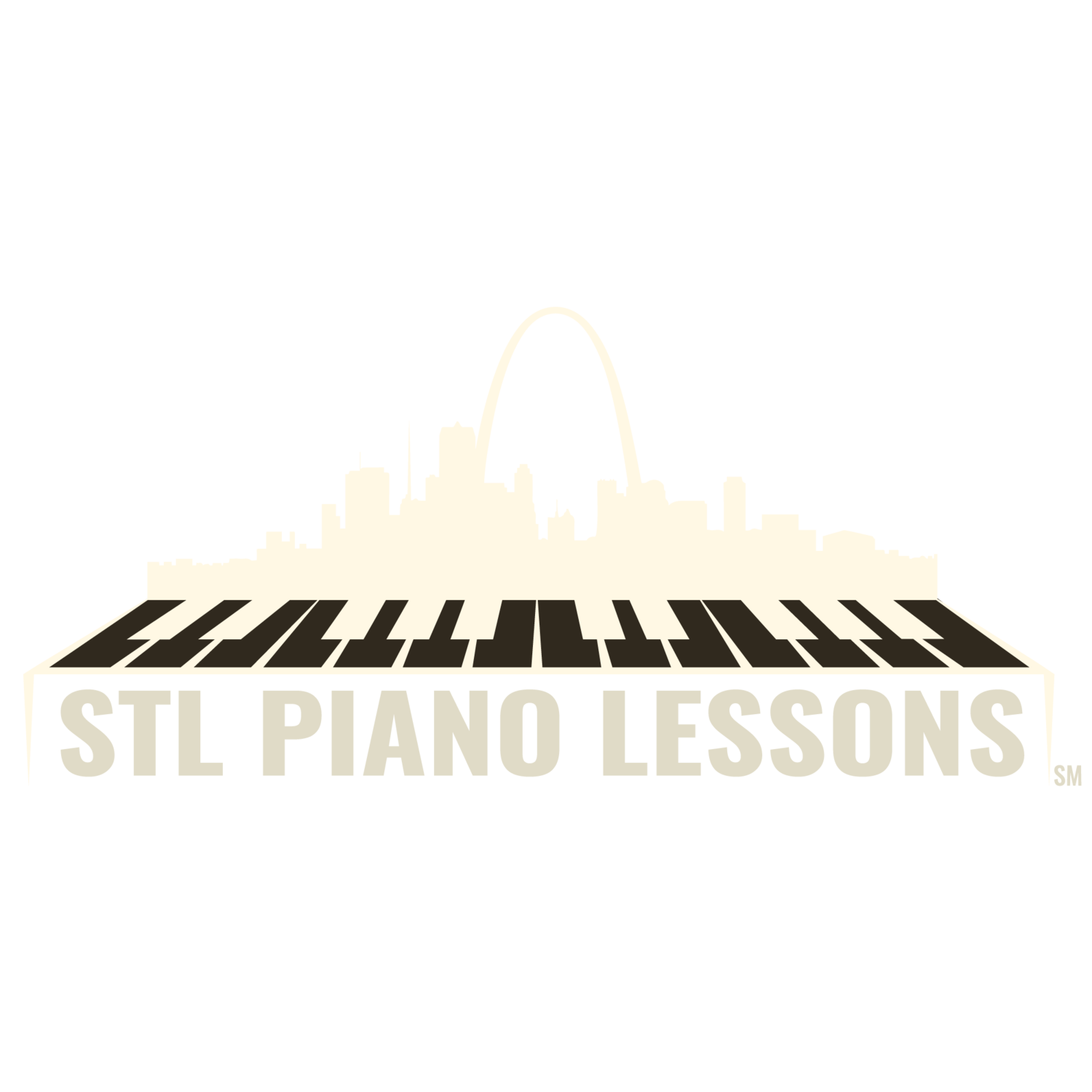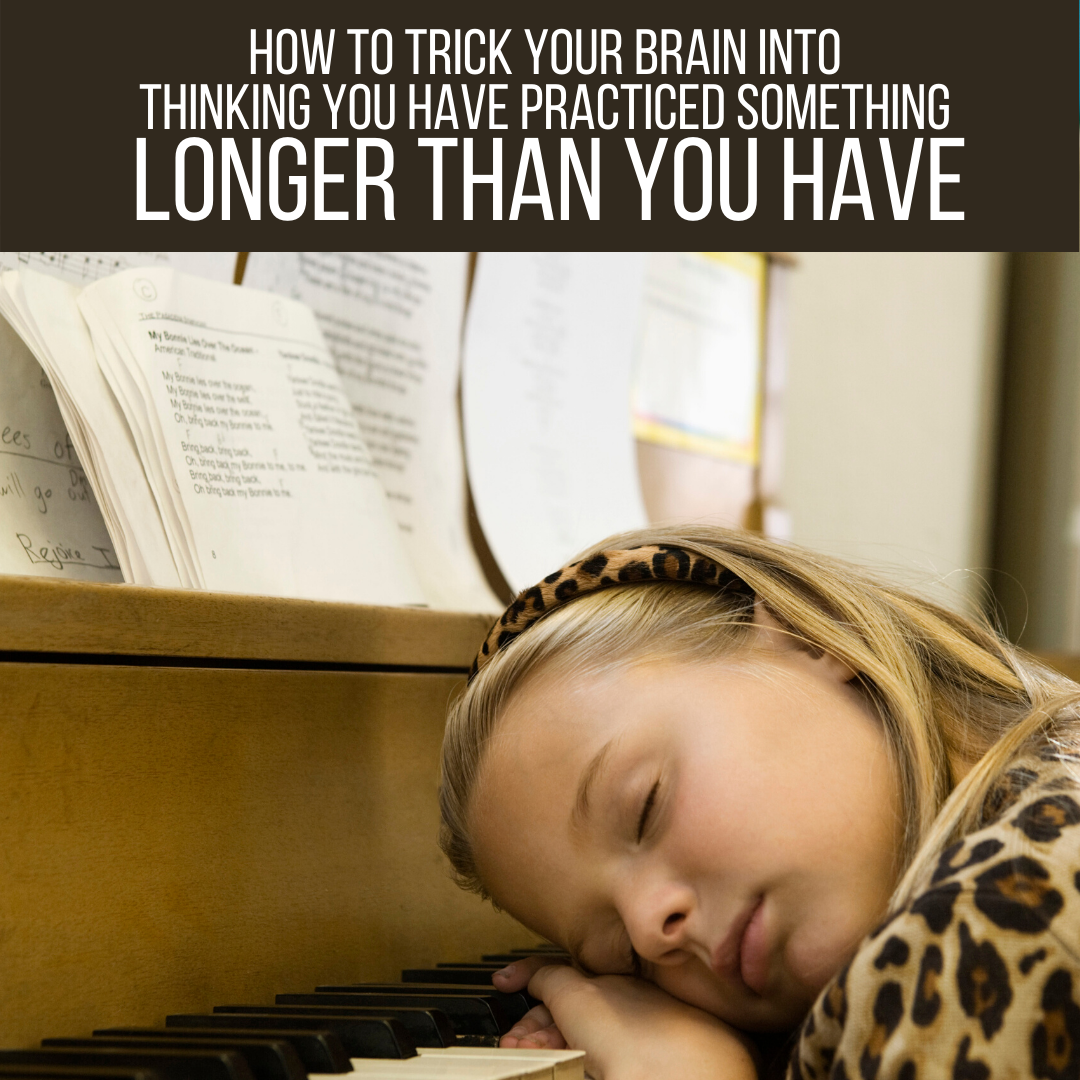Learning to play piano is not just about showing up to your piano lesson and playing some scales. Most of the learning actually happens at home when you practice. And really, the majority of your learning happens in your brain when you are sleeping.
Let me explain.
Have you ever had the experience where you are trying to learn something really hard on the piano. You figure if you just practice long enough, you will be able to do it, right? After an hour or so, you start to hit the wall. You start actually making more mistakes than when you started?
How can you actually be worse at something after practicing it for an hour?
When you practice, you can only practice for so long straight until your brain starts to shut off. We’ve all experienced it. We start getting sloppy, making more mistakes.
It’s because your brain has not had time to process everything you just practiced. Our brains are busy keeping us a live during the day. Telling our lungs to breathe, our heart to pump blood, taking in information, telling our hands and feet to move.
When our brains shut down for the night, that is when they finally have a chance to process all the other information, like all the practicing you did.
Most of our real learning happens in our sleep. Your brain needs some peace and quiet to connect all the dots. To create new nuero-transmitter connections and to solidify into your body and soul all that you practiced.
That is why when you come back to something the next day, you feel refreshed and you can play what you practiced just a little better than the day before.
Yes it does take a lot of repetition to get good at something. But it also takes a lot of downtime. There is no way to rush that process. Well, there is one way.
What is “Spaced Repetition?”
The answer is Spaced Repetition. All this means is having multiple shorter practices spread out over time instead of one long practice. It means doing 10-15 minute practices followed by breaks. These breaks can be minutes, hours or days, but the breaks are crucial. The breaks allow your brain to process all the information and in doing so, they actually speed up your progress.
You could compare this to a HIIT workout. These are all the rage in the fitness world right now because they work great and take a fraction of the time of a “normal” workout.
In a HIIT (High-Intensity Interval Training) workout, you do short bursts of high-intensity training followed by short bursts of recovery time. Each burst lasts 30 seconds to a minute. You do this cycle 4 or 5 times and your workout is done in 15-20 minutes.
And here is the best part - these workouts work! They have been proven to do just as much for your fitness if not more than a lower intensity, longer workout.
Practicing piano works the exact same way.
When you do hard cardio for shorter intervals, you are tricking your body into thinking you have worked out longer than you have. When you practice piano in short bursts more often, you are tricking your brain into thinking you have practiced more than you have.
Here is what to do…
Instead of practicing for hours and hours on end, try practicing something for 15 minutes. Then walk away for 15 minutes. Come back and practice it again for 15 minutes. Break. Repeat.
This process over a few days will trick your brain into thinking that more time has gone by than actually has. It will make the connections quicker. And suddenly you will be able to play that thing like you have been playing it for weeks or months. You basically sped up the process by getting your brain to process more in smaller chunks.
Say you are getting ready to play a recital and you only have a few days to get a very hard passage down. Is that even possible?
If you beat your head against the wall with super long practices, you will just get frustrated and you won’t be able to play it that well. But if you practice smart, and give your brain the rest it needs, you can absolutely learn something hard in only a few days.
It totally works.
Give yourself a break.
Don’t get me wrong, I am a fan of hours of practice sometimes. But you just need to know when to walk away and give yourself a break. This is especially true if you are just practicing one little part of a piece or a riff over and over. If you practice for hours, that is fine, just make sure you mix up what you are practicing. Take breaks. And get some sleep.
I am giving you permission to practice less. I am giving you permission to take more breaks. Now it’s up to you to try it and see if it works. I think you are going to like the results.
And your brain will thank you for it.


